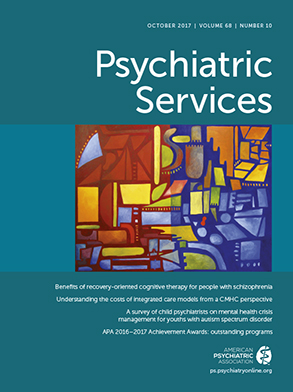In this issue of Psychiatric Services, Kalb et al. draw attention to the troubling state of resources for best-practice management of acute psychiatric crises among children and adolescents with autism spectrum disorder (ASD). Their study was prompted in part by the observation that a greater proportion of youths with ASD compared with youths in the general population present to an emergency department (ED) in a psychiatric crisis. With a dichotomous sample of child psychiatrists who routinely care for youths with ASD and those who do not, Kalb and colleagues questioned whether child psychiatrists are equally willing, prepared, and likely to use community resources to take on crisis management of youths with ASD. The authors concluded that the short answers are yes, yes, and not necessarily. Whether influenced by misperceptions fueled by media reports or knowledge of cases of mismanagement, experienced providers and parents alike suspect that first responders, EDs, and psychiatric inpatient services are not likely to provide high-quality acute care of youths with ASD who are experiencing a crisis. When treating these youths, child psychiatrists also reported limited access to external clinical assets, including psychologists, social workers, or coordinating evaluation centers.
For these and other reasons, parents or caregivers often choose to attempt de-escalation of the crisis at home. However, the authors found that child psychiatrists with experience treating ASD are less likely to help families develop home crisis management plans. We find this surprising—it is unthinkable that a child psychiatrist would, for example, neglect to instruct an adolescent with depression and his or her family to develop a safety plan to manage suicidal ideation. Failing home de-escalation, a trip to an ED, sometimes with bruises and scars or in the wake of property destruction, is often met with long wait times. One of us has experience (RED) managing children with ASD who were in crisis and who languished on ED stretchers for more than a week because of a shortage of appropriate inpatient psychiatric beds. Awareness of such instances may help explain the hesitation of psychiatrists to send these youths in crisis to an ED.
Kalb et al. briefly list pertinent initiatives in crisis management of youths with ASD, including community partnership intervention teams to divert ED visits, training of ED personnel in working with this population, and academic-governmental alliances to build a larger workforce of clinical providers who treat youths with ASD. These strike us as important but back-end solutions. Instead, we are reminded of Benjamin Franklin’s axiom that an ounce of prevention is worth a pound of cure, which is to say that prevention of psychiatric crises among youths with ASD is a far safer and more economical enterprise than any effort to contain and manage a crisis in progress. Although a future piece of front-end solutions will be better-tolerated preventive pharmacotherapies, much more effort can and should begin right now to implement effective behavioral de-escalation techniques in selected locations where psychiatric crises often begin—specifically, at home, in schools, in health care provider clinics, or in a public venue.
Families may inadvertently fan the flames of a crisis at home or may douse the flames with safe, effective de-escalation skills. Families deserve to be empowered with expert training to perform the latter. One of us (GV) directs a state-funded ASD and related disabilities center affiliated with our institution, which has limited capacity to train parents and caregivers in crisis de-escalation skills, but similar resources elsewhere are scarce. Many school systems have implemented teacher, counselor, and administrator de-escalation training, but not specifically for children with ASD. Primary care providers, often the most accessible and familiar clinicians caring for this population, would benefit from expert training in crisis de-escalation. Mandating this training in pediatric residency and nurse practitioner training programs and perhaps in maintenance of certification requirements should be considered. The best teachers of effective de-escalation skills at present are not necessarily child psychiatrists, but they may be the best students and quickest studies for a “train the trainer” model to implement parent de-escalation skills training. Emerging partnerships between academic training programs and local law enforcement agencies are now teaching first responders to recognize and approach individuals who have ASD—efforts that deserve expansion into autistic crisis de-escalation.
Operationalizing a paradigm shift toward preventive de-escalation training for helping youths with ASD who are experiencing psychiatric crises will require committed funding and research. To this end, it is both disappointing and frustrating that current political leadership in this country seems disinclined to invest human and capital resources where they do the most good—in this case preventive mental health care for children with ASD.

